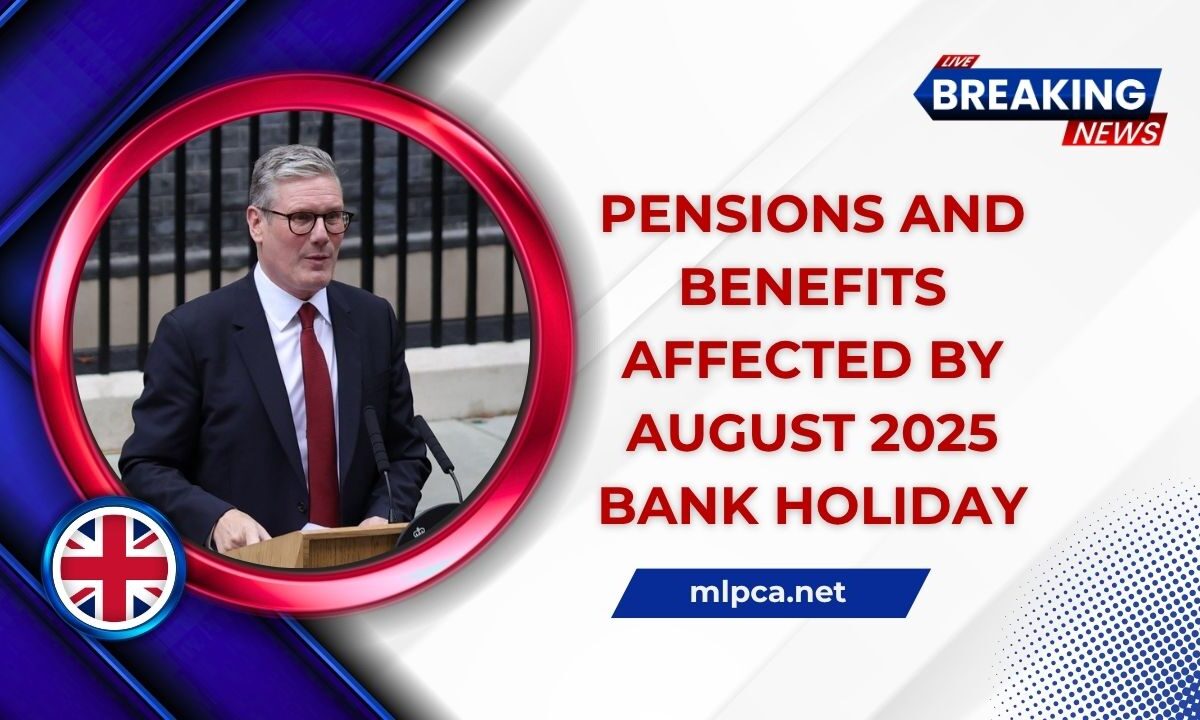As the UK continues to navigate economic uncertainty, millions of families depend on timely benefit and pension payments to manage everyday expenses.
With the August 2025 Bank Holiday on the horizon, it’s essential to understand how this affects your payment schedule. This guide also outlines vital cost of living support available to help households stay afloat.
August 2025 Benefit Payment Dates
Most Department for Work and Pensions (DWP)-administered benefits are paid regularly, but bank holidays can shift those dates.
The Summer Bank Holiday falls on Monday, 25 August 2025, which means any benefits scheduled for that day will be paid early on Friday, 22 August.
Affected Benefits Include:
- Universal Credit
- State Pension
- Pension Credit
- Child Benefit
- Disability Living Allowance (DLA)
- Personal Independence Payment (PIP)
- Attendance Allowance
- Carer’s Allowance
- Employment and Support Allowance (ESA)
- Income Support
- Jobseeker’s Allowance (JSA)
August 2025 Pension Payment Schedule
The Basic State Pension is paid every four weeks, depending on your National Insurance number. Here’s when to expect your payment:
| NI Number Ending | Payment Day |
|---|---|
| 00 to 19 | Monday |
| 20 to 39 | Tuesday |
| 40 to 59 | Wednesday |
| 60 to 79 | Thursday |
| 80 to 99 | Friday |
If your scheduled day falls on the Bank Holiday (25 August), you’ll receive your pension on 22 August instead.
Recent Benefit Increases (April 2025)
- Universal Credit and other working-age benefits increased by 1.7%, matching September 2024’s inflation.
- State Pension rose by 4.1%, in line with wage growth, providing a £472 annual increase.
- A Labour-introduced welfare bill ensures above-inflation increases to Universal Credit annually until 2029, starting with 2.3% in April 2026.
- The health-related Universal Credit component will be reduced from £105 to £50 monthly for new claimants in 2026.
Additional Cost of Living Support
1. Budgeting Advance Loans
Available to Universal Credit claimants:
| Status | Maximum Advance |
|---|---|
| Single | £348 |
| Couple | £464 |
| With Children | £812 |
From April 2025, repayment deductions from benefits will be capped at 15%, down from 25%.
2. Discretionary Housing Payments (DHP)
Helps those on Housing Benefit or Universal Credit with:
- Rent shortfalls
- Deposits
- Advance rent
Applications must be made through your local council.
3. Household Support Fund (HSF)
- Offers support with utilities, essential appliances, or up to £300 cash assistance
- Run by local councils, active until March 2026
4. Energy Price Cap (July–Sept 2025)
- Ofgem’s cap reduced from £1,849 to £1,720, a 7% drop, offering relief to most UK households.
5. Free Childcare Expansion
| Child Age | Free Hours Offered |
|---|---|
| 2 Years | 15 hours |
| 9 Months – 2 Yrs | 15 hours (from Sept 2024) |
| All under 5s | 30 hours (from Sept 2025) |
Apply and reconfirm eligibility every 3 months.
6. Charitable Grants & Energy Help
- Charities like Turn2us provide grants for various personal needs
- Energy providers (British Gas, EDF, Octopus, etc.) offer help for those struggling with bills
7. Council Tax Reduction
You may receive up to 100% reduction if you’re on certain benefits or facing severe financial hardship. Contact your local council to apply.
With August’s Bank Holiday potentially shifting payment dates, now is the time to plan and ensure you receive the support you’re entitled to.
From benefit increases and free childcare to help with rent, energy, and mental health—numerous programs exist to ease your burden.
Stay informed and contact your local authorities or DWP for assistance when needed.
FAQs
Will I still get my benefit payment if it’s due on the August Bank Holiday?
Yes, if your payment is due on Monday, 25 August 2025, you’ll receive it early on Friday, 22 August.
How do I apply for Discretionary Housing Payments (DHP)?
You must be on Housing Benefit or Universal Credit and apply via your local council. Eligibility varies by location.
What’s changing for Universal Credit from April 2026?
Universal Credit will receive above-inflation increases yearly through 2029, but the health-related component will be reduced from £105 to £50 per month for new claims.
